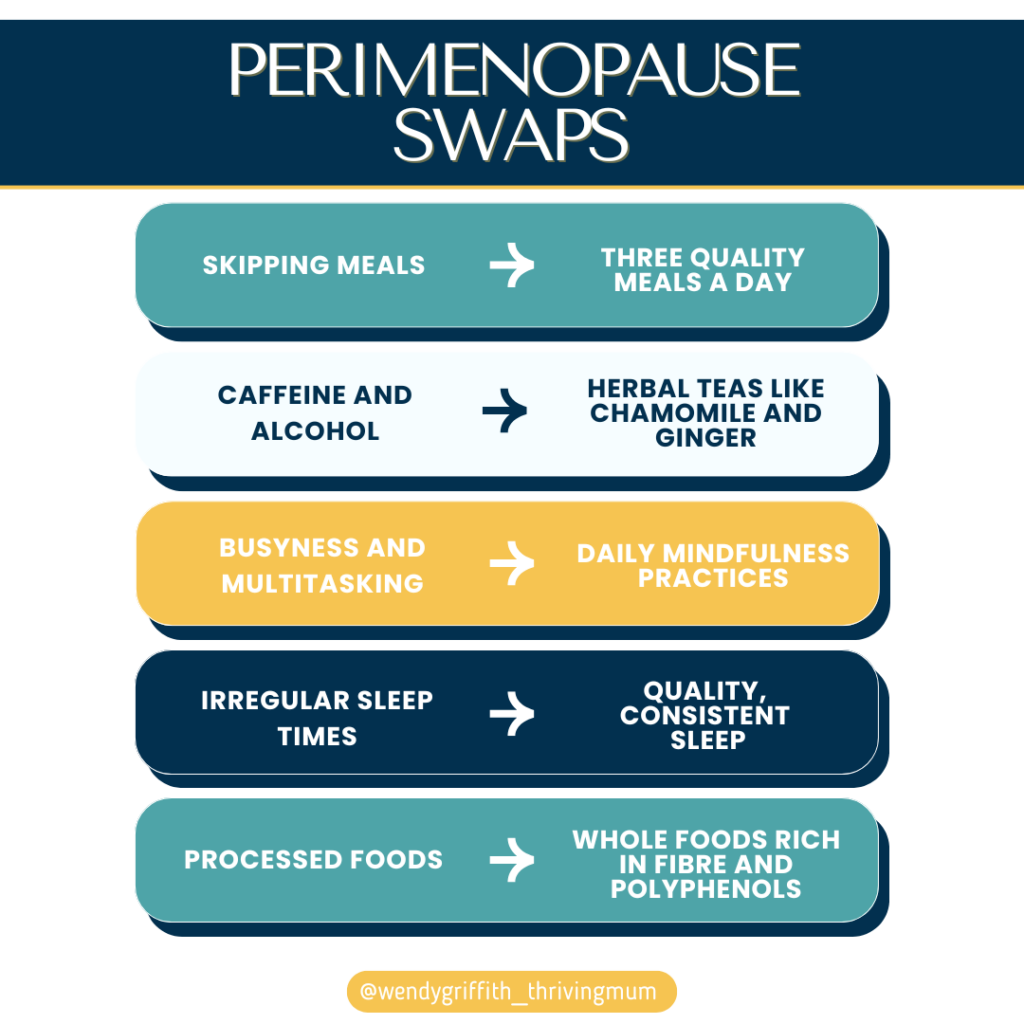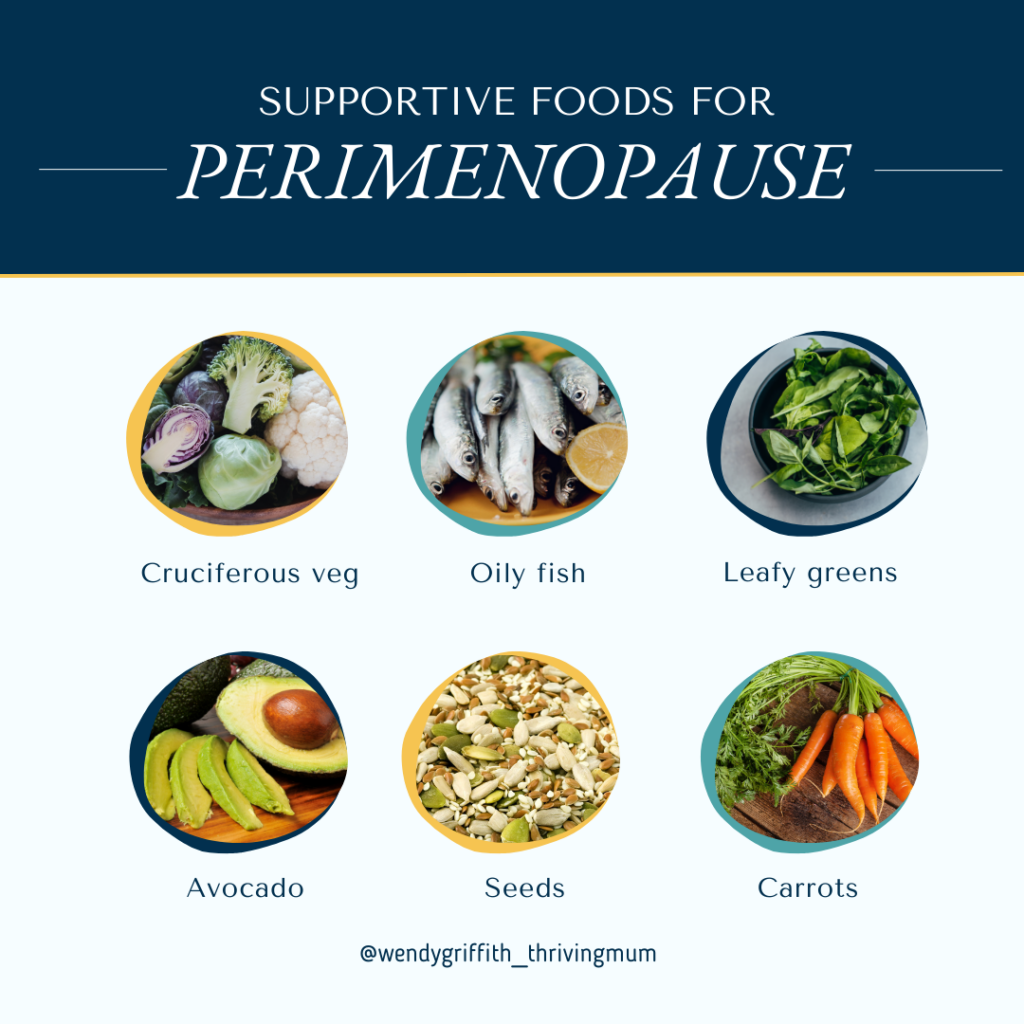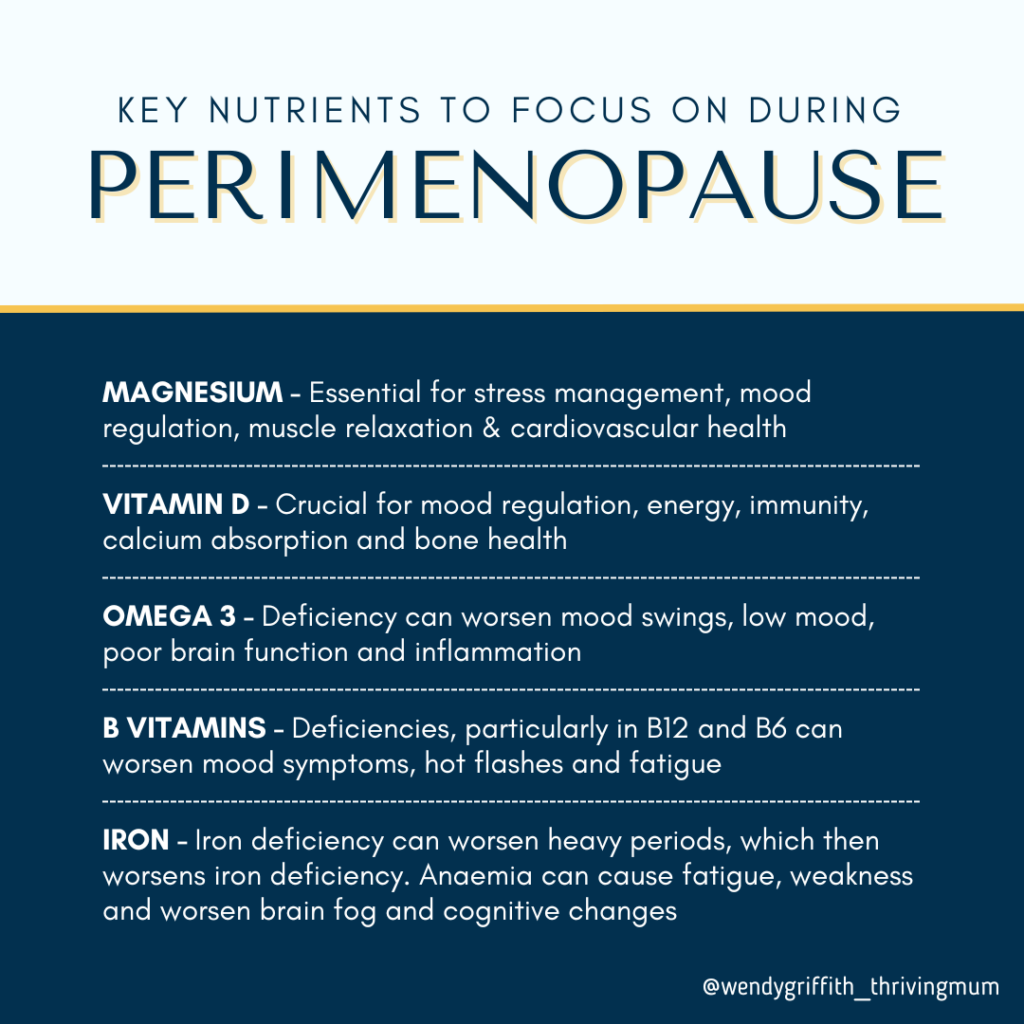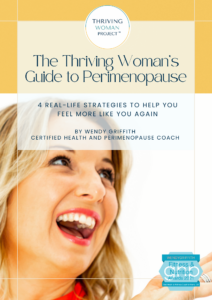Your body’s not broken – it’s changing. And when perimenopause hits, that change can feel… a lot.
The hormonal shifts in perimenopause can leave you tired, bloated, foggy, moody, gaining weight (especially around the middle), and wondering what on earth is going on.
But here’s the good news: the way you eat can help you feel more balanced, more energised and more like yourself again.
As a Certified Menopause Practitioner and Wellness Coach (and someone who’s been through it!), I’m here to show you how.
What’s happening with your hormones In Perimenopause?
In perimenopause, your hormones don’t just drop – they fluctuate. This hormonal rollercoaster is what drives so many of the classic (and lesser-known) symptoms.
Here are the three key hormones shifting right now:
Oestrogen: Spikes and crashes. Impacts mood, periods, bones, sleep, brain, skin and energy.
Progesterone: Steadily declines. This calming hormone helps with sleep and easing anxiety.
Testosterone: Supports motivation, libido, energy and strength. Declines can leave you feeling flat or “off.”
There are also two other hormones you need to be aware of in Perimenopause:
Cortisol: your stress hormone. In perimenopause, you’re more sensitive to stress. High cortisol can worsen anxiety, belly weight gain, and sleep issues.
Insulin: this manages blood sugar. Many women develop insulin resistance in midlife, which makes energy dips, sugar cravings and fat storage more common.

→ If you want a full breakdown of perimenopause symptoms, read:
1. What is Menopause?
2. Signs You Might Be in Perimenopause
Why nutrition really matters in perimenopause.
The food you eat impacts so much more than just your weight.
Balanced nutrition in perimenopause can help:
- stabilise blood sugar
- support hormone production and clearance
- improve sleep
- reduce inflammation and joint pain
- ease bloating
- reduce cravings and mood swings
- support your metabolism
- boost energy and brain clarity
And no – it’s not about cutting everything out. It’s about adding in the right stuff to support your body better.
A Mediterranean-style approach works well in Perimenopause!
One of the most evidence-backed ways of eating for hormone health is a Mediterranean-style pattern. It’s not a strict diet – it’s a flexible way of eating that supports gut health, metabolism, and hormone balance.
Focus on:
- colourful vegetables and fruit (aim for 30+ plant types a week)
- protein with every meal (fish, eggs, tofu, beans, chicken)
- healthy fats (olive oil, avocado, seeds, nuts)
- whole grains and fibre
- fermented foods (yoghurt, kefir, sauerkraut)
- herbs and spices
- reducing processed food and sugar where possible
For recipe inspiration – get my Recipes for Thriving in Perimenopause & Menopause

What’s happening with metabolism?
If you’re gaining weight in perimenopause – particularly around the belly – you are not alone.
As oestrogen declines, your metabolism slows, especially if you’re losing lean muscle mass or not eating enough. Low food intake + high stress = hormonal chaos.
To support your metabolism:
- don’t skip meals (especially breakfast)
- eat enough protein (20-30g per meal)
- move your body in a way that builds or maintains muscle
- stay hydrated
- prioritise sleep and stress reduction

Key nutrients to focus on in perimenopause
These nutrients are especially supportive for midlife women:

If you’re still feeling off despite eating well, it’s worth speaking to a practitioner. Testing nutrient levels can be a helpful next step.
Don’t forget about gut health
Your gut affects how your body processes oestrogen – thanks to a collection of bacteria called the estrobolome. If your gut’s sluggish or inflamed, it can reabsorb hormones that should have been cleared, making symptoms worse.
To support your gut:
- eat 30+ plant-based foods a week
- include fermented foods
- stay hydrated
- reduce sugar and ultra-processed foods
- chew slowly and mindfully

What’s working for me
At 40, I hit the wall. My usual workouts and nutrition habits just weren’t cutting it anymore. I was tired, holding onto weight, and didn’t feel like myself – physically or mentally.
Here’s what’s been making a difference:
- Eating enough – especially protein, fibre and healthy fats to balance my blood sugar and support my hormones
- Moving in a way that supports my cycle – strength, walking and rest when I need it, not pushing through just because I “should” – learn more about this here
- Staying consistent, not perfect – showing up for myself with small, repeatable habits
- Listening to what my body actually needs – nourishment, strength, recovery, space
- Using supplements where needed to support energy, sleep and hormonal balance
- Getting support – because trying to figure it all out on my own left me overwhelmed and stuck
Need personalised support?
If you’re tired of feeling confused and want a tailored plan that works for your life – not another one-size-fits-all fix – my Perimenopause Power Session is here to help.
💬 “I came to Wendy completely fed up. I’d tried everything and nothing helped. After one session, I finally understood what was going on – and had a plan that made sense. It’s changed everything.” – Angela, 41
Because you don’t have to figure this all out on your own. Let’s get you feeling like you again.
Further resources to support you:
Feeling off, anxious or just not yourself? It could be perimenopause.
Download The Thriving Woman’s Guide to Perimenopause – your simple, no-nonsense guide to what’s really going on in your body.

Thriving Woman Project Podcast
Join the Thriving Woman Project Facebook Group
Follow me on Instagram Follow me on Pinterest
About Wendy Griffith
Wendy Griffith is a Certified Menopause Practitioner, accredited Health & Wellness Coach, and marketing mentor for women who want to thrive in life, health and biz – not just survive it.
After a successful corporate career and over a decade running her own businesses, Wendy now blends expert knowledge with lived experience to help women navigate midlife with more energy, clarity and confidence.
Through her Thriving Woman Project, she offers real-life wellness tools, hormone education and habit-building strategies that work in busy, messy, everyday life. No fluff. No overwhelm. Just grounded support that meets you where you are.
She’s passionate about helping women feel well, grow a biz they love, and live a life they don’t need a holiday from. Her mantra? The best gift you can give your family and the world is a healthy and thriving you.
Disclaimer
This blog is intended as a general educational guide and does not replace individual medical or professional advice. Please consult your GP or qualified healthcare provider before making any changes to your health routine.